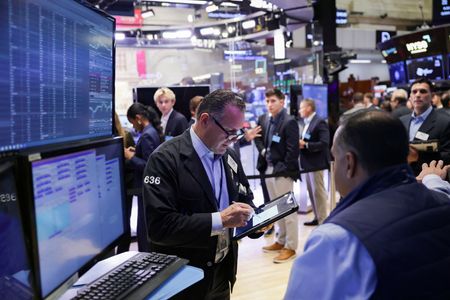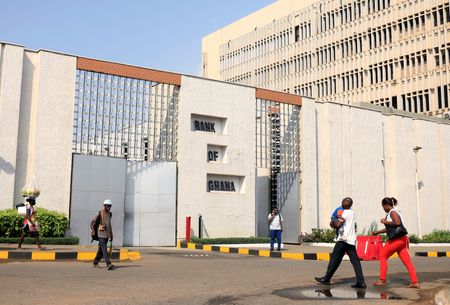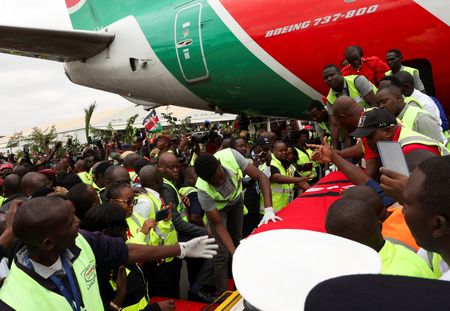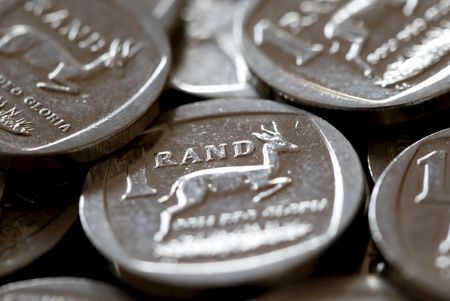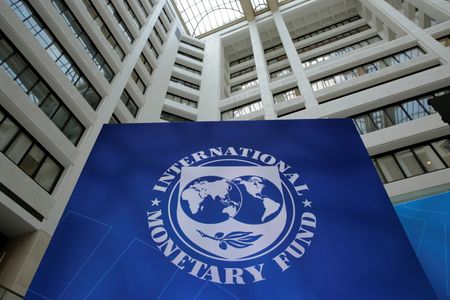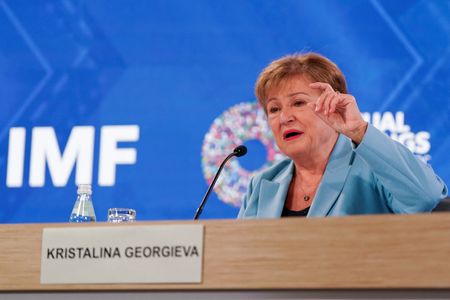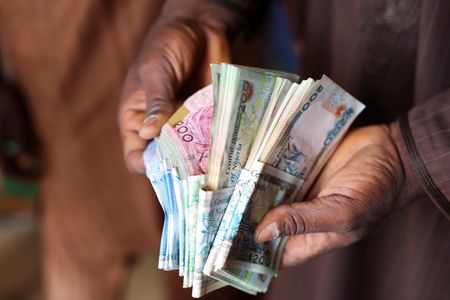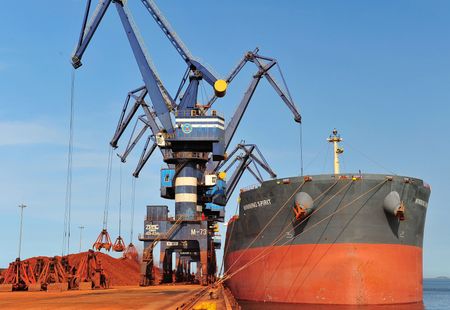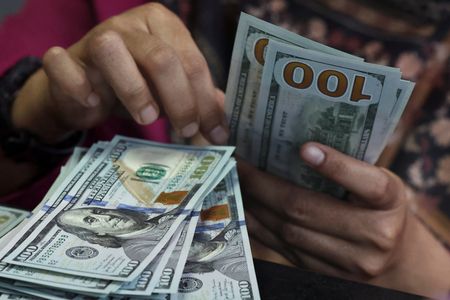By Stephen Culp
NEW YORK (Reuters) -Wall Street stocks advanced and gold prices surged ever upward on Thursday as solid corporate earnings helped investors look past simmering trade tensions between the United States and China.
All three major U.S. stock indexes followed their European counterparts to modest gains, while safe-haven seekers continued to send gold to fresh highs.
Chipmaker TSMC posted record profit and hiked its full-year guidance, stoking the fervor surrounding artificial intelligence and easing concerns over an AI bubble.
“AI continues to come up with new alliances, good earnings releases … and there’s no reason for investors to change their mind on the outlook of technology,” said Sam Stovall, chief investment strategist of CFRA Research in New York. “At the same time, we had much better than expected results from the large U.S. banks, implying that the economy looks pretty resilient.”
Even so, signs of a dampening labor market are causing policymakers to lean in the direction of an interest rate cut this month. Federal Reserve Governor Christopher Waller said on Thursday that “based on all the data we have … I believe that (the Fed) should reduce the policy rate another 25 basis points” at the conclusion of this month’s monetary policy meeting on October 29.
Financial markets are currently pricing in a 94.6% likelihood of an October rate cut, according to CME’s FedWatch tool.
Investors were eying the latest developments in the escalating U.S.-China trade dispute. Top U.S. trade officials condemned China’s expansion of crucial rare earth exports, while Beijing accused Washington of stoking global panic over supply chain disruption.
Trade uncertainty is one driver helping to launch gold prices to all-time highs, according to Stovall.
“Because of the trade tensions, a lot of central banks, global central banks are buying gold and that is being helped by lower interest rates as well as the weakening U.S. dollar,” Stovall added. “It’s not a reaction to worries about the global economy, but rather political uncertainty.”
The Dow Jones Industrial Average rose 151.90 points, or 0.33%, to 46,405.32, the S&P 500 rose 37.12 points, or 0.55%, to 6,707.93 and the Nasdaq Composite rose 212.34 points, or 0.94%, to 22,882.42.
European stocks advanced as investors took largely upbeat corporate earnings to heart amid easing political tensions after French Prime Minister Sebastien Lecornu survived a confidence vote.
MSCI’s gauge of stocks across the globe rose 6.48 points, or 0.66%, to 991.90.
The pan-European STOXX 600 index rose 0.45%, while Europe’s broad FTSEurofirst 300 index rose 10.02 points, or 0.44%
Emerging market stocks rose 13.43 points, or 0.98%, to 1,379.12. MSCI’s broadest index of Asia-Pacific shares outside Japan closed higher by 0.92%, to 714.93, while Japan’s Nikkei rose 605.07 points, or 1.27%, to 48,277.74.
The dollar edged lower against the euro and the yen as tariff jitters and dovish comments from Federal Reserve officials weighed on sentiment.
The dollar index, which measures the greenback against a basket of currencies including the yen and the euro, fell 0.17% to 98.50, with the euro up 0.2% at $1.1669.
Against the Japanese yen, the dollar weakened 0.11% to 150.88.
The yield on benchmark U.S. 10-year notes fell 0.3 basis points to 4.042%, from 4.045% late on Wednesday.
The 30-year bond yield fell 0.1 basis points to 4.6378% from 4.639% late on Wednesday.
The 2-year note yield, which typically moves in step with interest rate expectations for the Federal Reserve, fell 0.5 basis points to 3.501%, from 3.506% late on Wednesday.
Oil prices steadied after U.S. President Donald Trump said India’s Prime Minister Narendra Modi pledged to halt Russian oil imports.
U.S. crude rose 0.02% to $58.28 a barrel and Brent fell to $61.89 per barrel, down 0.03% on the day.
Gold continued to benefit from trade tensions and the U.S. government shutdown as investors flocked to the safe-haven metal.
Spot gold rose 1.24% to $4,259.80 an ounce. U.S. gold futures rose 1.75% to $4,250.00 an ounce.
(Reporting by Stephen Culp; Additional reporting by Marc Jones in London and Kevin Buckland in Tokyo; Editing by Nick Zieminski)

